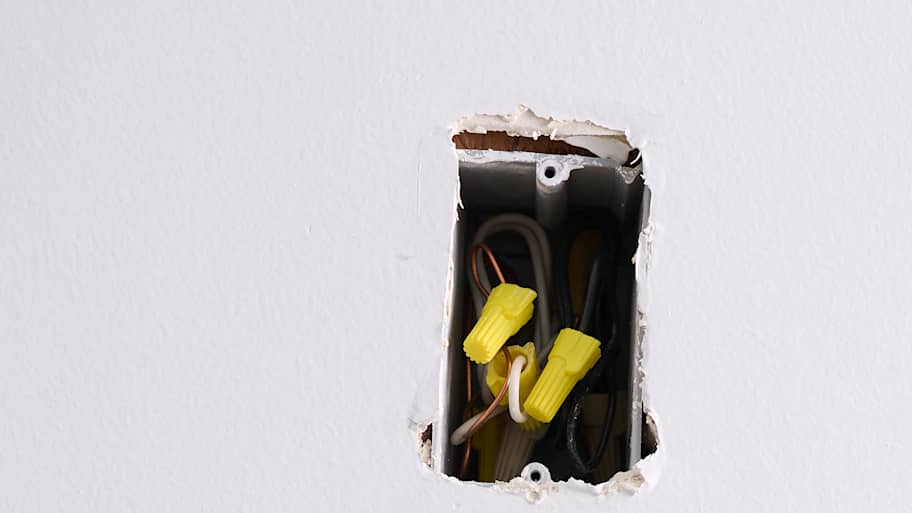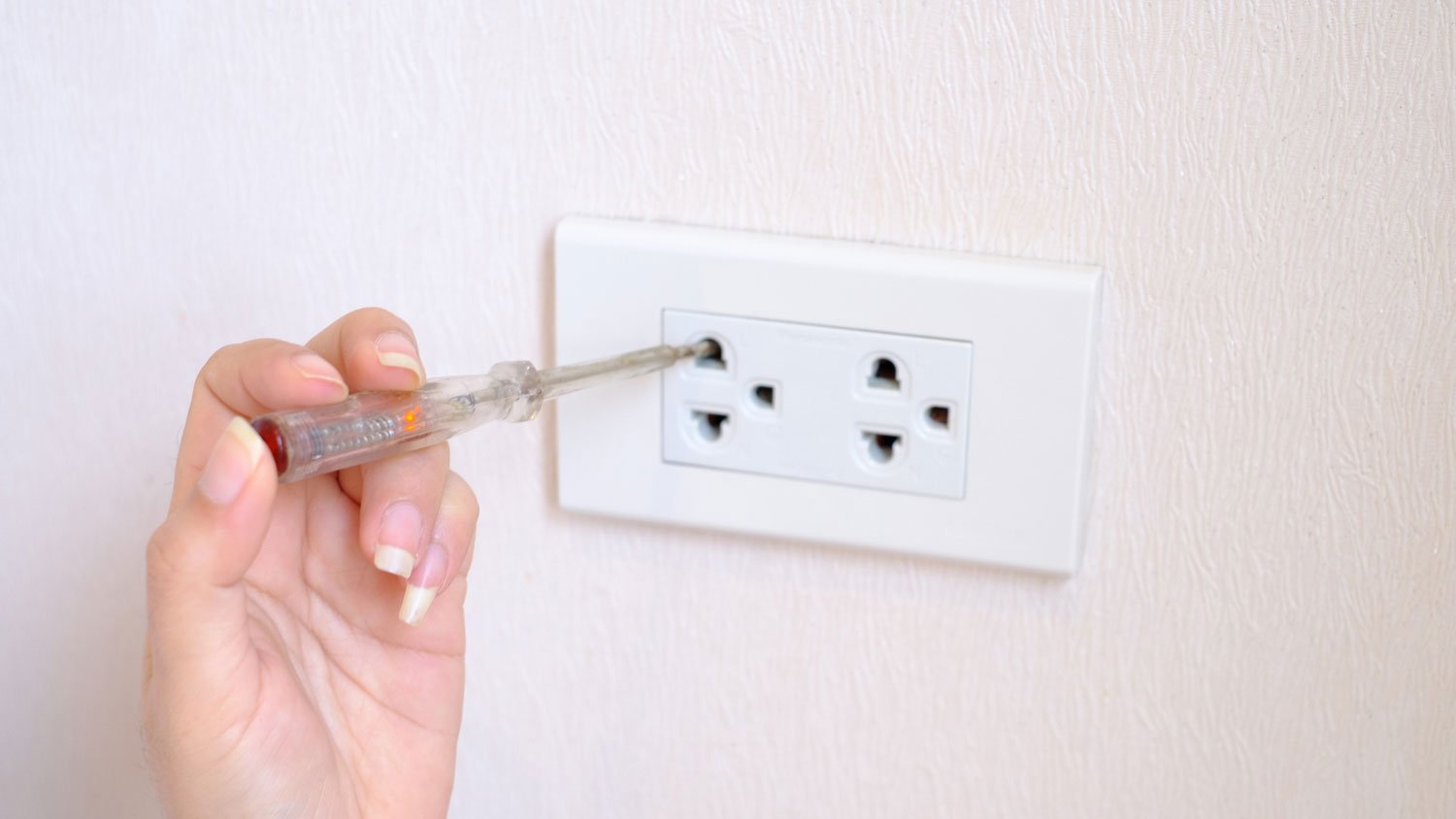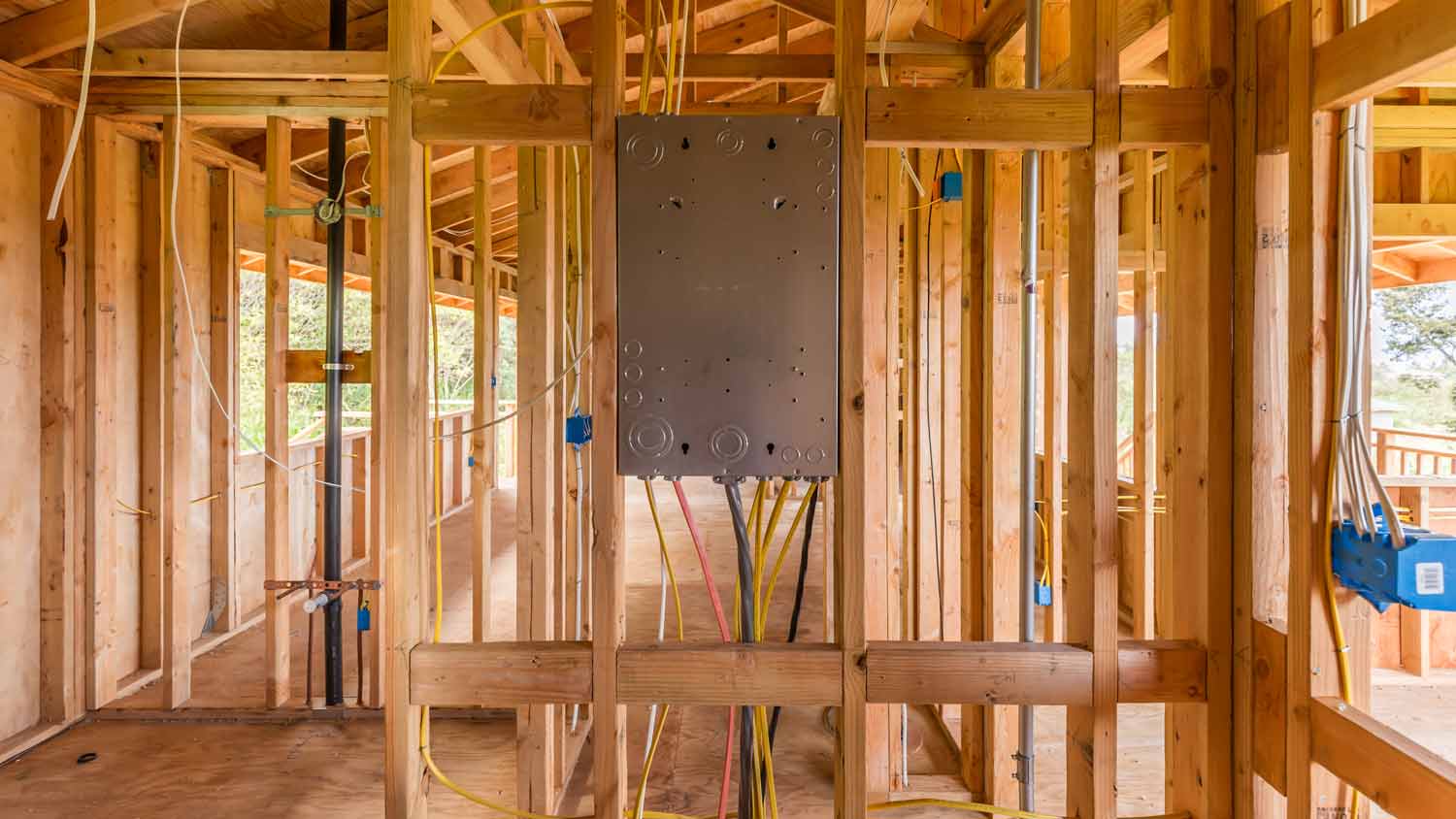Is a Dead Outlet Dangerous? What You Need to Know
Determining why an outlet is dead will help you to figure out whether or not it’s dangerous


A dead outlet can be inconvenient no matter the cause, but is a dead outlet dangerous? A damaged outlet can be an electrical fire risk, so if that’s the case, you should hire a licensed local electrician to inspect and repair it as soon as possible. Let’s take a look at when a dead outlet is dangerous.
Homeowners should steer clear of DIY electrical repairs or installations, as the risk of injury is shockingly high! Instead, hire a local electrician who has the expertise to complete electrical jobs safely.
When a Dead Outlet Is Dangerous
A dead outlet is a safety problem if there is damage to the outlet or the wiring that powers the outlet. If an outlet is not working and the breaker isn’t tripped or if there isn’t another immediately obvious cause, you should turn off the power to the outlet by switching the circuit breaker off and contact a professional electrician to address the damage before proceeding.
Your Outlet Is Burnt Out
If an outlet has been severely overloaded, it can be damaged by the heat created during the overload. Often, you will be able to see the heat damage from a burnt outlet on the outside of the receptacle, but sometimes the damage will remain internal. A burnt outlet is dangerous, and this heat damage will usually cause a burning or melting plastic smell. If there’s any evidence of a burnt outlet, an electrician should handle the repair.
Outlet Wiring Is Faulty
Sometimes, especially in older outlets, the contacts where the outlet is attached to your home’s wiring can become loose. These loose contacts can cause arc faults or other problems, eventually making the outlet stop working.
There could also be worn-out insulation on the wiring going to the outlet, or the outlet could’ve been installed incorrectly. While it can be difficult to tell if this is the reason the outlet isn’t working, you might notice flickering lights, intermittent function of the outlet itself, or repeated tripped circuit breakers. These are all reasons to be concerned, and you should have a licensed electrician help address them for safety reasons.
Harmless Reasons Your Outlet Isn’t Working

While a dead outlet can be dangerous, there are some straightforward reasons your outlet might not work. Going through a checklist when your outlet is not working before assuming the worst is a good way to avoid an expensive repair bill. Here’s what you should check first if there’s no outward sign of damage to the receptacle.
Switch in the Off Position
If you have what’s known as a half-powered outlet or a whole outlet controlled by a switch, you should ensure that the switch is in the on position before declaring an emergency. If you don’t use the switch frequently, you might not know where the switch is or what it controls. Try turning your appliance or light off, flipping the wall switch on, and then turning your accessory on to see if that’s the problem.
Tripped GFCI
If a ground fault circuit interrupter (GFCI) outlet suddenly stops providing power, it is likely tripped. This action can happen because an appliance is malfunctioning, an outlet isn’t properly powered for the appliance or appliances plugged into it, or there’s damage. If your GFCI outlet keeps tripping, you should unplug everything from the outlet and check the voltage of what you had plugged in compared to the maximum voltage of the outlet. In North America, most household outlets are rated for 120 volts, but some appliances like washing machines, central AC units, or ranges require more power and need a 240-volt outlet. If you have an appliance that draws more volts than the outlet is rated for, the GFCI can trip. You can fix this by finding the right outlet for the appliance you’re attempting to use and resetting the GFCI outlet.
If removing an appliance or appliances that are drawing too much power doesn’t solve your problem, chances are that the GFCI outlet isn’t working properly or the appliance could be damaged. You should unplug the appliance that’s causing the issue or turn power to the damaged outlet off until a qualified professional can assess and address the issue.
Tripped Circuit Breaker
A tripped circuit breaker will cause an outlet to stop providing power. This can happen if there is too much power being drawn from the outlet or from damage. If you have more than one outlet on one circuit, it’s possible to plug in accessories that draw more power than the circuit can provide. Try unplugging and checking the voltage on lamps and other electrical appliances to make sure they don’t accede 120 volts. If you discover the reason for the tripped breaker, you can reset the breaker with less draw on the circuit. If that’s not the reason, it could be caused by damage and you should contact an electrician to help you diagnose and solve the problem.
Cost to Replace an Electrical Outlet
The average cost to replace an outlet ranges from $125 to $200. How much you spend depends on whether you go down the DIY route or hire a professional, the type of electrical outlet you select, how many you are replacing, and whether any additional electrical upgrades are required.
DIY vs Hiring a Pro
It’s possible to learn how to replace an outlet yourself. However, it’s only something to attempt if you have solid electrical experience. Getting things wrong with the wiring can be a significant safety risk. If you aren’t savvy with sockets, it’s always best to hire a local electrician to prevent the risk of fires or electrocution.
Frequently Asked Questions
A correctly functioning outlet will not cause a fire risk if nothing is plugged in. However, if the circuit is overloaded or there is a fault with the outlet, the connecting wiring, or the circuit it is attached to, this can lead to the risk of fire or electrocution, even when nothing is plugged in. Turn off the circuit breaker immediately and seek professional assistance if you suspect a fault.
There are various reasons why an electrical outlet can stop working. You might have to do some detective work to understand whether it’s a problem with the attached appliance, the outlet itself, or a faulty breaker. Sometimes, old age or loose wiring are to blame; other times, it can be as simple as an overloaded circuit tripping the system and cutting power. If you’re troubleshooting doesn’t solve the mystery or repairs, or replacements are required, it’s time to call in the pros.



.jpg?impolicy=leadImage)

- Home Generator Repair
- Lamp Repair
- Electric Repair
- Generator Installation
- TV Antenna Services
- Emergency Electricians
- Commercial Electricians
- Attic Fan Installation
- Attic Fan Repair
- Exhaust Fan Installation
- Electric Inspectors
- Subcontractors
- Electrical Construction
- EV Charger Installer
- Chandelier Installation
- Doorbell Installation
- Bathroom Fan Installation
- Ring Installers
- Electrical Panel Upgrade
- How to Fix an Outlet That Stopped Working When the Breaker Has Not Tripped
- Why Is My Outlet Hot?
- How to Wire an Outlet From Another Outlet in 9 Steps
- How to Fix Loose Outlets: A Step-by-Step Guide
- How to Reset an Outlet Without a Reset Button
- Outlets Not Working in One Room? Here’s How to Solve
- 4 Ways to Fix Bathroom Outlets That Are Not Working
- Why Are My Lights Out But the Breaker Is Not Tripped?
- What Is a GFCI Outlet and How Does It Work?
- What Do GFCI Electrical Outlet Buttons Do?
















